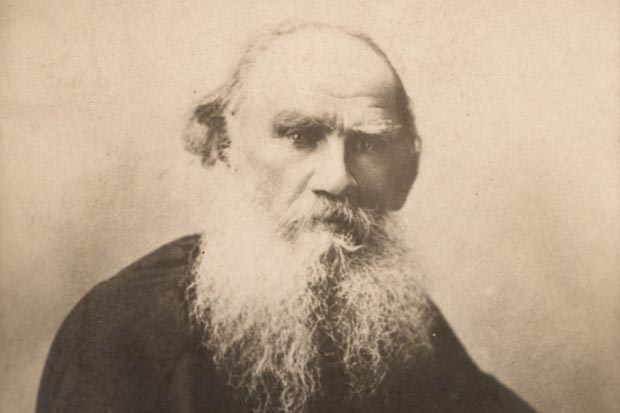To have listened to Radio 4’s marathon ten-hour adaptation of Tolstoy’s War and Peace as it was being broadcast on New Year’s Day must have been both wonderful and a bit weird. Like soaking in an ever-replenishing warm bath, indulgent, luxuriant, all-absorbing. Yet at the same time I imagine it was quite hard by the end to step back into your own world after being so taken over by the fictional cares of the Rostov, Bolkonsky and Bezukhov families. Needless to say, I caught barely one episode on that day (how many, I wonder, did listen all the way through?).
Fortunately, there’s a chance to catch up in the old-fashioned way, week by week, on Saturday nights (or to download and listen whenever you choose). This, though, is a different kind of listening experience. In between each episode I lose track a bit of where we are in the story; the characters have to make themselves known again. As the specially composed music (by Stephen Warbeck) slows us down, gets us in the mood and settles us in Russia in the early 1800s, it takes a while for me to stop worrying where we have reached in the book; who’s speaking now; what will happen next. But after only a few minutes such scattered thoughts disappear as Tolstoy’s imagined world is recreated on air brilliantly by the extraordinary cast (John Hurt, Lesley Manville, Harriet Walter and other great stars from theatre and film), the soundworld (designed by David Thomas) and the clever adaptation by Timberlake Wertenbaker. The key, I think, is to forget that this is Tolstoy and just to listen to it as radio; to be swept away by the interplay of voices, the conjuring up of place, of atmosphere, of panic, fear and bliss, by the play of fate upon the characters we come to know as the dramas unfold.
So far (we’ve just heard episode three of the complete ten) we’ve experienced the terrible defeat at Austerlitz, Kutuzov’s humiliation, Pierre’s escape from Helene, Lise’s death, each mini-drama resonating as powerfully as in the novel. Pierre (played by Paterson Joseph) has the questing yet gentle voice I’ve always imagined, bumbling and horribly self-conscious yet keenly aware of others. The battle scenes come alive in a way that’s often quite hard to follow in the book, Wertenbaker cleverly setting the drama after everything has happened so that Pierre and Natasha (Phoebe Fox) are looking back with their children, telling stories about the war, the crucial scenes brought to life by Roger Allam as General Kutuzov and Simon Russell Beale as Napoleon. ‘I want to know how he thought,’ Prince Andrei’s son asks of Pierre. We might miss the full impact of Andrei’s vision on the battlefield, or his first sight of Natasha, but we are taken inside these lives, these characters, and given a whole world to inhabit.
The Infinite Monkey Cage (Radio 4, Mondays) is a Marmite programme: you either love the way Brian Cox and his team of professional scientists and comedians liven up science by inserting jokes into their analysis of the Big Bang, biodiversity, the joy of numbers or find it all deeply irritating. I must confess to the latter, knowing that it’s good to be told about these things but wishing we could have it all straight, without the in-jokes and studio laughter. But I was drawn in this week by the promise of an investigation into subliminal advertising — those coded messages that might, or might not be, inserted into adverts for Coca-Cola and popcorn.
In Can You Spot the Hidden Message? (which went out on air just before TIMC), the journalist David Aaronovitch took us back to 1956 and the fear that a way had been found to flash messages on to cinema screens which the audience would not see but whose content would influence them to buy certain products. After much huffing and puffing at that time it was decided, by scientific research, that in the unlikely event such messaging had an effect it would not last long, barely a few minutes, and would work only if, say, you were already thirsty or hungry.
Aaronovitch decided to test it out on the TIMC audience who were each given a bag of crisps (to make them thirsty) and a blindfold, either red or black. They were shown a brief and dramatic video clip, once for those with a black blindfold, and again for those with a red blindfold. The second clip contained a ‘prime’, or the brief, very brief repetition of the word ‘Lipton’, so brief it would not normally be visible to the naked eye. Then all the participants were asked what they would like to drink — mineral water or Lipton’s iced tea.
Cox and his guests discussed the results on TIMC in typical bluff style, claiming they showed nothing, there was no impact. But there was little explanation of how the numbers had been crunched and why they were so sure they showed no effect. In a programme that was primarily about deception and the way we start lying before we are three, they needed to do more to convince me.






Comments